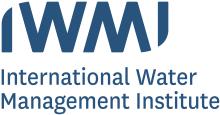Resource information
Developing countries like India are actively being encouraged to move from the traditional supply-side orientation towards proactive demand management under the broad framework of Integrated Water Resources Management (IWRM). Integrated Water Resources Management (IWRM) is a sound philosophy which is hard to disagree with. However, in developing countries, what usually gets passed-off in the name of IWRM at the operational level takes a rather narrow view of the philosophy and has largely tended to include a blue-print package including: [1] A national water policy; [2] A water law and regulatory framework; [3] Recognition of River Basin as the appropriate unit of water and land resources planning and management; [4] Treating water as an economic good; and [5] Participatory water resource management. Several of these mark a significant shift from current paradigms and making this transition is proving to be difficult. Drafting new water laws is easy; enforcing them is not. Renaming regional water departments as basin organizations is easy; but managing water resources at basin level is not. Declaring water an economic good is simple; but using price mechanisms to direct water to high-value uses is proving complex. As a consequence, the so-called IWRM initiatives in developing country contexts have proved to be ineffective at best and counterproductive at worst.



